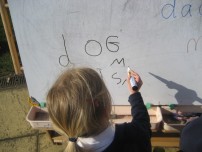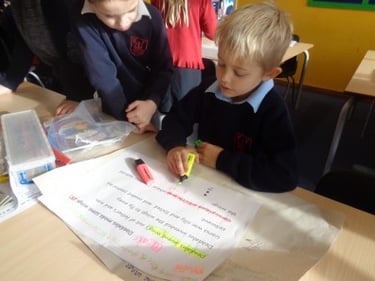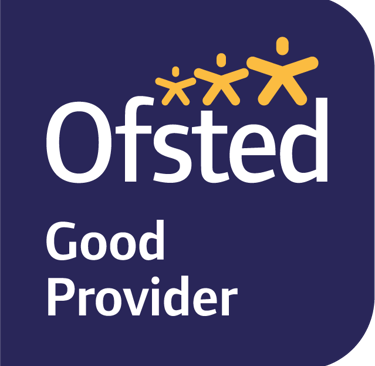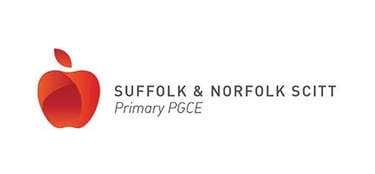ENGLISH
Our Intent for English and literacy at Kingsfleet
To develop literacy skills in all children, which enable full access to the wider curriculum allowing them to engage purposefully with the wider world and prepare children for lifelong learning.
To build confident listening and speaking skills so that all children can communicate and appreciate the thoughts, opinions and feelings of others
To promote children’s interest and enjoyment of written language so that all children are empowered to express their own self-expression and creativity.
To embed the skills of decoding and increase reading fluency so that all children can engage positively with a variety of fiction, non-fiction and poetry
To observe, explain and question authors’ writing conventions so that all children can appreciate and utalise the key features of the English language to both formally and fluently write, creatively and efficiently
Oracy
Intent
Communication and language skills provide the foundation for the development of later literacy skills thus we believe oracy education should be the golden thread that unites every stage of a child’s schooling. Our aim at Kingsfleet is to provide all children with the skills to listen, process and respond effectively and confidently to a variety of stimuli. These skills, as outlined in The National Oracy Framework include the nurturing of each child’s physical, linguistic, and social and emotional abilities to convey their thoughts, feelings and understanding.
Implementation:
Each week, children are encouraged to participate in a whole school assembly where a story, poem, theme or concept are introduced. Focus questions are proposed and are then discussed and reflected upon in class and then, age phase assemblies throughout the following days to allow children to succeed in different sized focus groups and with varied audiences. Children are also encouraged to discuss the assembly content with family members and other willing participants. Key vocabulary and thoughts are shared and reflected on and successful use and understanding of new language and perspectives are celebrated.
Impact:
Engaging in high-quality oracy practices during our shared assemblies, cross-phase discussions and class lessons has deepened pupils’ understanding and led to greater knowledge retention, vocabulary acquisition and reasoning skills. Children who may have been reluctant to share their thoughts and ideas are gaining in confidence and all children are being exposed to a richer vocabulary which is impacting on all areas of effective communication.
Phonics
Intent
Our aim at Kingsfleet is to give all children a solid foundation in phonics on which to start their reading journey. This will start in EYFS and will continue throughout KS1 and beyond. Children will be confident in their recognition of phonemes and graphemes and will be able to apply these consistently in their reading and writing.
Implementation
At Kingsfleet we have built a Synthetic Systematic Programme designed to teach all the Grapheme Phoneme Correspondence (GPC) and to support children in applying their learning. Children will have daily Phonics lessons from Reception where they will be taught the GPC systematically and with pace and rigour. Our scheme focuses on a new GPC taught each day, with a review at the end of each week. Lessons will include the use of flashcards to revise previously taught GPC’s and will teach children to not only recognise the graphemes, but will be able to identify these within words. Children will learn how to spell words by the use of sound buttons and will progress to reading and writing phonetically decodable sentences. The teaching of tricky words will also be included in the daily lessons
In addition to this, throughout EYFS and Y1, phonics activities will be continued in provision, this will enable children to practice and consolidate GPC’s that have been taught. Home/School reading books run in a progressive sequence alongside the phonics lessons so that children can consolidate the GPC’s that have been taught.
Impact
Children at Kingsfleet start learning Phonics from the first few week of Reception, this gives them the building blocks required for reading simple words and will enable them to start reading and spelling simple words quickly. Children continue to build on this throughout their time in school.




Reading
Intent
Our aim at Kingsfleet is to foster an enjoyment for reading and to develop strong literacy skills that will serve as the foundation for lifelong learning. We aim to expose our children to a diverse range of texts, both fiction and non-fiction, that encourage curiosity, creativity, and critical thinking. By promoting regular reading practice, we strive to enhance comprehension, vocabulary, fluency, and the ability to think analytically. Our goal is to ensure that all children not only read with confidence but also develop an appreciation for literature that will inspire their imaginations and expand their knowledge of the world.
Implementation
To achieve our intent, we will implement a structured and inclusive reading program that caters to the needs of all learners. This will include:
Daily Reading Time: Designating time each day for independent and guided reading to encourage regular reading habits.
Diverse Book Selection: Providing a variety of age-appropriate books, including picture books, chapter books, non-fiction, and digital resources that reflect different cultures, interests, and experiences.
Guided Reading Sessions: Small group and whole class instruction led by teachers to provide personalised support, focusing on skills such as decoding, fluency, and comprehension.
Phonics and Vocabulary Instruction: Incorporating phonics instruction to support early readers, as well as vocabulary-building activities to enhance word knowledge.
Reading Comprehension Activities: After reading, children will engage in activities like discussions, written reflections, and quizzes to test their understanding and encourage critical thinking.
Parental Engagement: Encouraging parents to read with their children at home and share books, helping to strengthen the home-school connection and reinforce the importance of reading.
The reading program is supported by using Accelerated Reader to monitor reading progress.
Early reading is linked to books matched to the phonics teaching and is mainly comprised of book from the Collins Big Cat scheme.
Impact
The impact of our reading program will be evident in the improved literacy outcomes for our children.
Increased Reading Confidence: Children will demonstrate greater fluency and comprehension skills, allowing them to approach reading tasks with confidence.
Enhanced Vocabulary and Language Skills: With exposure to a wide range of texts, children will develop a richer vocabulary and improve their writing and speaking abilities.
Critical Thinking and Engagement: Children will learn to make connections between texts, think critically about what they read, and engage in meaningful discussions about literature.
Lifelong Enjoyment for Reading: Our goal is for all children to develop a positive attitude towards reading that continues beyond their time in primary school, encouraging lifelong learning and curiosity.
Progress in Academic Achievement: As reading skills improve, children will see gains in other subjects, as reading forms the basis for success in areas such as science, history, and mathematics.
Overall, our reading program will create an environment where every child feels empowered to explore the world of literature and develop the literacy skills necessary for academic and personal success.
Writing
Intent
At Kingsfleet our aim is to encourage all pupils to be able to write both fluently and effectively in order to convey their thoughts, feelings and knowledge. This ability evolves through the teaching of two main strands
transcription (spelling and handwriting)
composition (articulating ideas and structuring them in speech and writing)
Implementation
Handwriting and spelling, (transcription), are taught weekly throughout the key stages, building on the children;s phonic knowledge and aspiring towards and beyond the appropriate age phase statutory word acquisition.
Composition is being taught through the gradual embedding of a new writing scheme - The Literacy Project’s ‘Pathways to Writing’, in which all children will be exposed to a variety of written texts which exemplify high standards of creative and factual writing, correct use of grammar and a rich and varied vocabulary.
This scheme is cyclic and intertwines all elements of the National Curriculum’s Literacy Framework in a well planned, enjoyable and inspiring manner. It encompasses and promotes cross-curricular themes which give greater purpose and relevance to the childrens’ writing and high-lights the importance of effective written communication to our students. There are numerous opportunities for pupils to plan, revise and evaluate their own writing and the scheme emphasises that effective composition involves articulating and communicating ideas, organising them coherently for a reader and being aware of the audience one is addressing.
Impact
As Pathways to Write is embedded throughout the school, we expect the following outcomes:
Improved Writing Skills: Children will demonstrate significant growth in their writing abilities, including increased clarity, organisation, and coherence in their written work. They will learn to effectively express their ideas, structure their writing logically, and use appropriate grammar and punctuation.
Enhanced Creativity and Expression: By engaging in diverse writing activities, children will develop their creative voice, learning to explore different genres, such as narratives, poetry, persuasive writing, and informational texts. This will allow them to express themselves with greater confidence and originality.
Critical Thinking and Reflection: children will develop stronger critical thinking skills by planning, drafting, revising, and editing their work. Through feedback and self-reflection, they will learn to assess and improve their writing, developing a growth mindset.
Increased Confidence in Writing: As children receive support and guidance through individualised instruction and peer collaboration, their confidence in their writing abilities will grow. This will encourage them to take risks in their writing and embrace challenges with a positive attitude.
Stronger Academic Performance Across Subjects: Writing is a skill that transcends subjects, and as children strengthen their writing abilities, they will see improvements in other areas of learning, such as reading comprehension, research skills, and verbal communication.
Lifelong Writing Habits: By building a solid foundation in writing, children will develop lifelong habits that will serve them throughout their education and beyond.
In summary, the Pathways to Write program will empower children to become confident, creative, and competent writers, equipping them with the skills and mindset necessary for success in school and in life.


